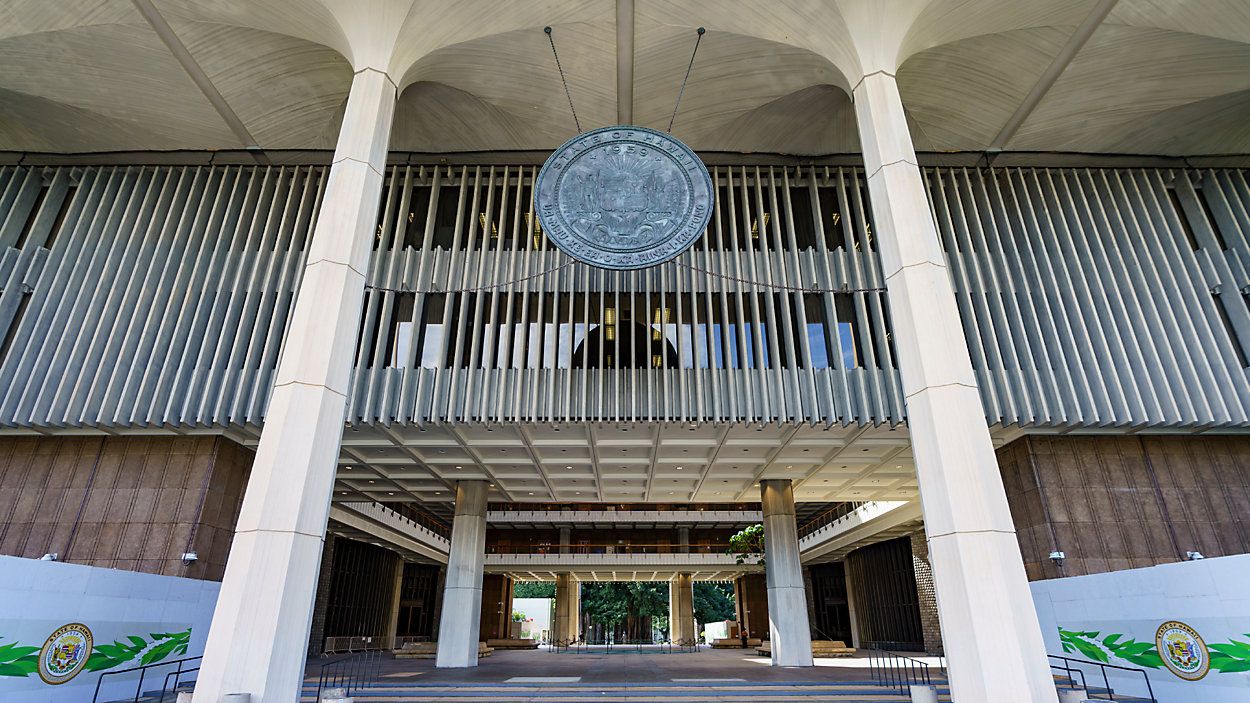HONOLULU — The state Legislature passed a measure Wednesday that would end state and county reimbursement of Medicare Part B premiums for spouses of retirees. The change would affect spouses of retired city or state workers with a hire date after June 30, 2023.
Supporters of Senate Bill 1314 Senate Draft 2 House Draft 1 say the measure is more than 20 years overdue and relatively painless since it does not affect current retirees. Opponents argue that eliminating the reimbursement erodes employee benefits at a time when departments are struggling with recruitment and thousands of positions remain unfilled.
The Senate received a House draft of the bill on second crossover last week and initially moved to disagree. However, the body reconsidered and passed the bill on final reading on a 23-2 vote.
The bill has been sent to Gov. Josh Green for final approval.
In earlier testimony in support of the measure, Hawaii Employer-Union Health Benefits Trust Fund administrator Derek Mizuno called SB 1314 a “reasonable, long-term cost-containment proposal.”
State law and EUTF administrative rules require that eligible retirees and their dependents enroll in Medicare Part B to be eligible for EUTF retiree medical and/or prescription drug plans. They also require employers to reimburse retirees and their spouses for Medicare Part B premiums, currently about $165 per month.
Mizuno testified that the proposed change should have happened in 2001 when the state and counties were freed from contributing to dependent health care premiums of retirees who began their service after 2001.
Luis Salaveria, director-designate of the Department of Budget and Finance, also testified earlier to the savings the state would achieve through the legislation.
“The proposed amendment will reduce the annual required contributions for Other Post-Employment Benefits for the state, the counties and other public employers,” Salaveria said. “Medicare Part B premium reimbursements paid to the spouses of retirees are a significant cost to the state and totaled approximately $24.5 million in Fiscal Year 2022. EUTF’s actuary projects that this change in benefits will reduce the tate’s OPEB costs by about $1.2 billion over the next 30 years, providing some additional flexibility in the State’s budget to accelerate pre-funding of OPEB, allocate funds toward other priorities, or respond to economic downturns.”
However, local unions opposed the change.
“While we appreciate that the proposed changes to Section 87A-23, Hawaii Revised Statutes will affect prospective employees hired after June 30, 2023, and fully recognize the long-term cost savings to the EUTF, we are concerned about the continued, steady erosion of the retirement benefit package for career government employees,” testified Randy Perreira, executive director of the Hawaii Government Employees Association. “These gradual reductions in benefits — coupled with the astronomical cost of health care — does not aid in the recruitment and retention of your government workforce.”
State of Hawaii Organization of Police Officers president Bobby Cavaco said the loss of another valuable employee benefit could exacerbate the staffing problems county police departments are already facing.
“The existing and already reduced retirement benefits for police officers do not attract a sufficient number of qualified police officer recruits, turnover is constant, new recruits enlist and then cannot make it through our training or they graduate and soon leave for other jurisdictions that offer higher compensation and take our training with them and our most experienced officers, i.e., those who are eligible to retire, are exiting at the first opportunity,” Cavaco said. “This bill may compound this crisis by potentially discouraging and disincentivizing individuals from becoming police officers, which in turn will further hinder the respective county departments’ ability to recruit new officers.
“The simple fact is we should be making our retirement benefits more competitive as opposed to further dwindling away valued benefits from future employees otherwise we will continue to lose the hiring battle and lose officers to other jurisdictions that offer much greater and more attractive benefit packages,” he said.
Prior to Wednesday’s vote, Sen. Karl Rhoads echoed the concerns.
“At a time when we have hundreds and hundreds of vacant positions, it doesn’t make any sense to me to reduce the pay we give to state employees,” he said. “And it wasn’t that many years ago that we made a major adjustment to the retirement side of post-employment benefits where we reduced the average pension by about 30%. I just think it’s going the wrong way. I think we’ve gone as far as we can realistically go and continue to expect to get good employees.”
Sen. Kurt Fevella said reducing benefits compromises one of the state’s traditional advantages as an employer.
“We may not offer the best pay for some of our jobs that we have here in the state, but the state is among the best in offering attractive benefits,” Fevella said. “The Department of Human Services reports that there is a rate of 23% vacancies for nearly 4,000 positions. How are we supposed to appeal to new hires when we are cutting back the very benefits that make us appealing and attractive?”
But Sen. Donovan Dela Cruz said the measure merely “cleans up” what was left unaddressed in 2001.
“If we’re really trying to get better employees and more employees, what we should be focusing on is pay differentials (and) reclassifications not necessarily this,” he said. “I don’t think this actually solves the problem of trying to attract new employees.”
Michael Tsai covers local and state politics for Spectrum News Hawaii.



